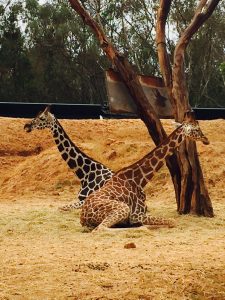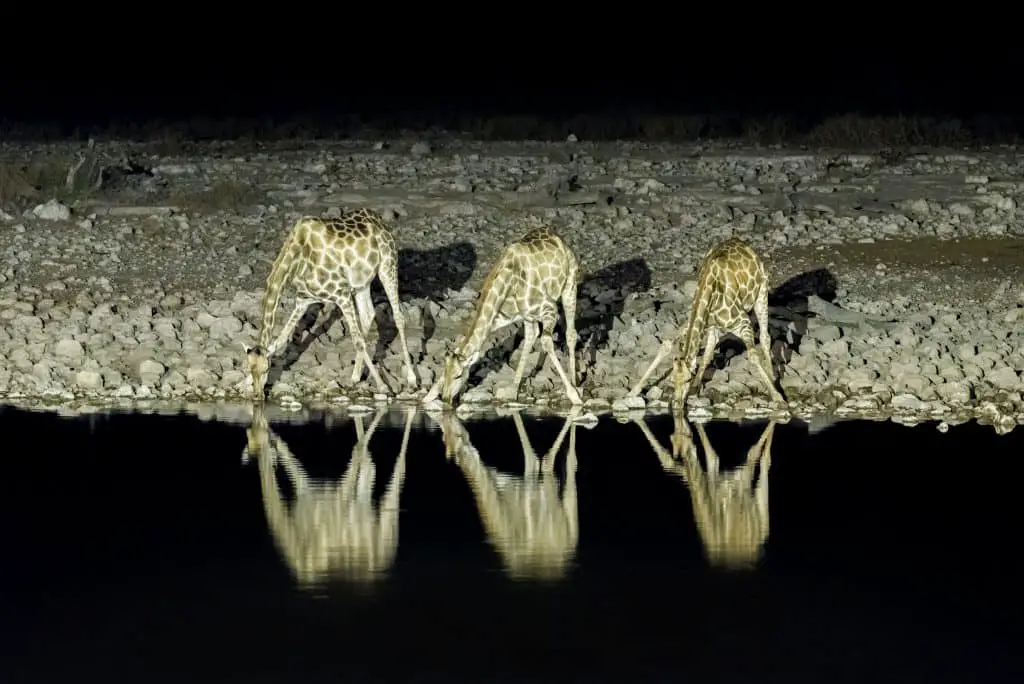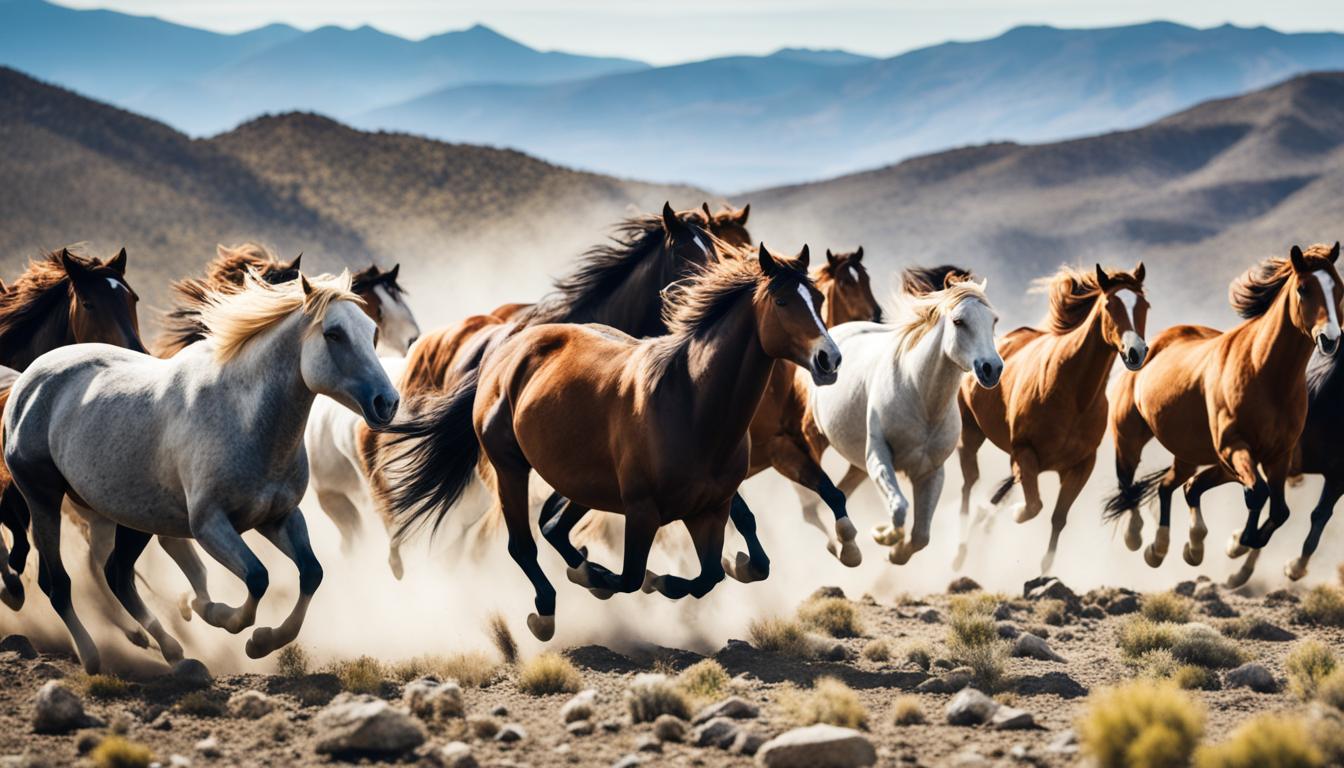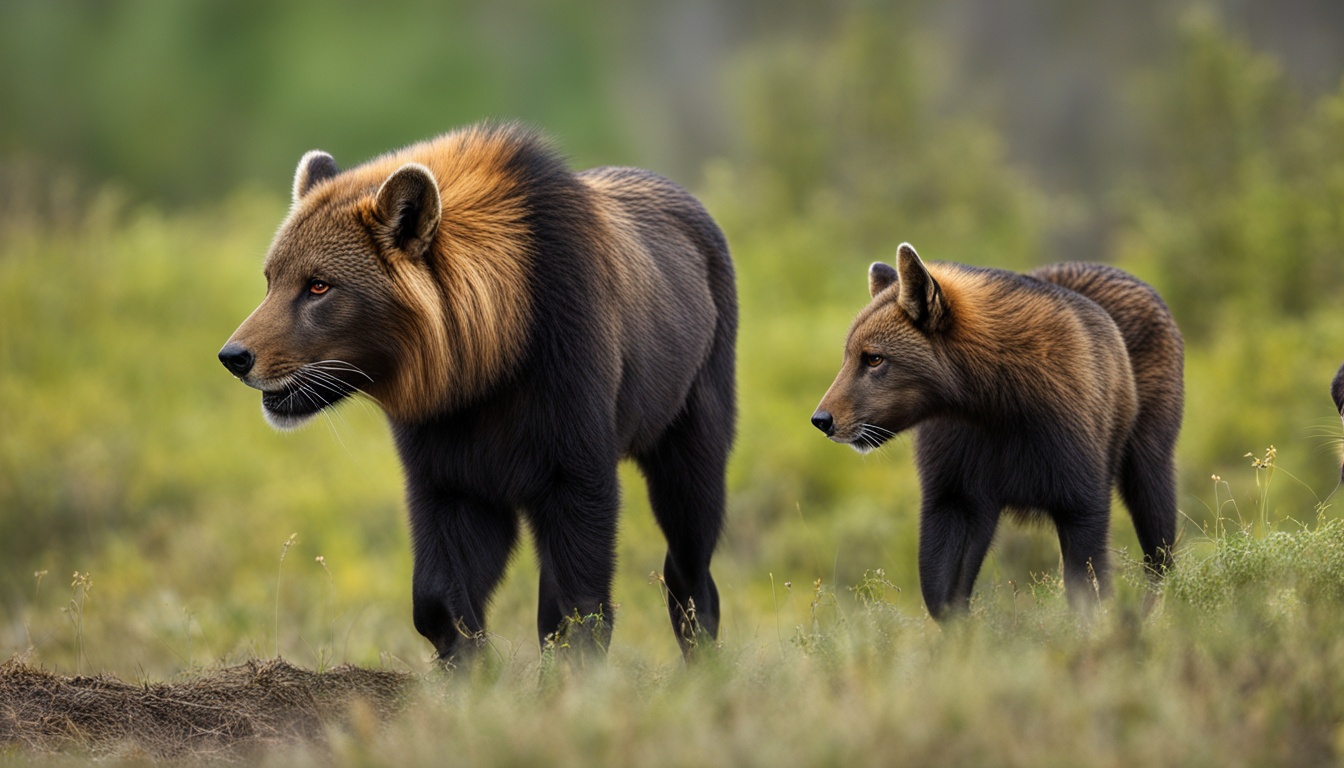Yes, Giraffes commonly sleep standing up. Giraffes like to lie down and have a good snooze when they can. But in the wild – lying down is often a bad idea.
Why Do Giraffes Sleep Standing Up In The Wild?

The main reason for this seemingly uncomfortable way of sleeping is that giraffes are still prey animals. They are hunted by large predators like lions and leopards – so they need to be on high alert at all times – day and night.
Add to this the fact that sleeping upright means that at a moment’s notice – you are ready to run off. Lying down on the ground with all those legs folded under you is just a few extra seconds you will need to evade capture.
Being fully relaxed would also mean that you might sleep a little bit deeper and so be less likely to hear the warning signs of an approaching big cat or pack of hyenas.
Do Giraffes Sleep At Night Or During The Day?
Giraffes are diurnal – awake during the day – so often do most of their sleeping at night. But it isn’t much sleep. They have to eat for around 16-20 hours a day – so being awake most of the time is how they manage to do this constant eating.
Giraffes in general only sleep in power naps anyway – during the day they will have quick 5-35 minute naps – maybe a longer snooze if they feel really safe or are in the company of others.
During the dry season, giraffe numbers are denser and so being in a larger herd means more eyes and ears to watch out. Less chance of being caught unawares.

Why Do Giraffes Only Sleep In Short Bursts?
Sleeping in short bursts throughout the day allows them to stay awake overall for more of the day. Being vulnerable to attack means that they are safer staying awake and on their feet. As a result, giraffes have evolved energy-saving ways to do this without getting tired.
However, giraffes have two other things that affect how long and which position they can sleep in. Nothing in nature is ever straightforward.
Specialised Circulation:
Giraffes need very high blood pressure to keep blood moving up the brain and around the body. They have a giant heart, specialized one-way valves, and very tight skin on their legs to make sure nothing affects the circulation. But lying down too long can. Anything longer than around 4 hours (as seen often in zoos) is avoided.
Giraffes know that they need to move to stay healthy.
Specialised Stomachs:
As ruminants, giraffes have a very specifically-designed stomach complex. The gases that build up in the rumen to help ferment all the leaves and plant material ingested throughout the day have to follow their normal path. If they get caught up or pass the wrong way it can be fatal to a giraffe.
This is why they will lie down upright only – on their folded legs – like camels (another ruminant). They will also always rest their head on their own body to keep everything the right way up (the same direction as when they are standing).
Why Do Giraffes In Zoos Sleep Laying Down?
Hopefully, giraffes at your local zoo – or in videos online – are safe and secure. They know that they have a nice routine, lovely people come and feed them, and there isn’t a leopard in sight. They can relax.
The main reason that giraffes usually sleep standing up is that they don’t feel safe – and so this is a natural reversal for them.
Feeling a bit more secure in their environment allows them to chill more and therefore lying down is seen more often.
Like domestic cows and sheep do on rainy days. Captive giraffes get fed nice, nutritious food and so can chew the cud either standing up or lying down.
The same goes for sleeping. Giraffes in zoos still take power naps standing up – but at night they are much more likely to lie down for several hours of sleep (the deep straw bed is an incentive too).
It is almost a shame to think that these giraffes prefer to lie down for this long instead of sleeping on their feet – as it suggests that their wild relatives never really get the chance to relax properly. But I suppose if wild giraffes live to around 25 years – they must be getting enough sleep either way?










